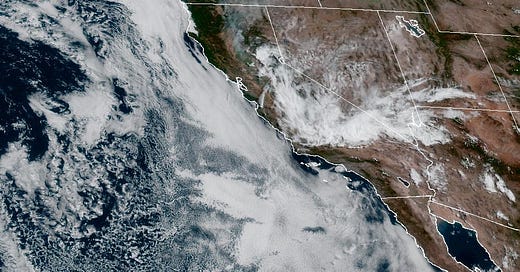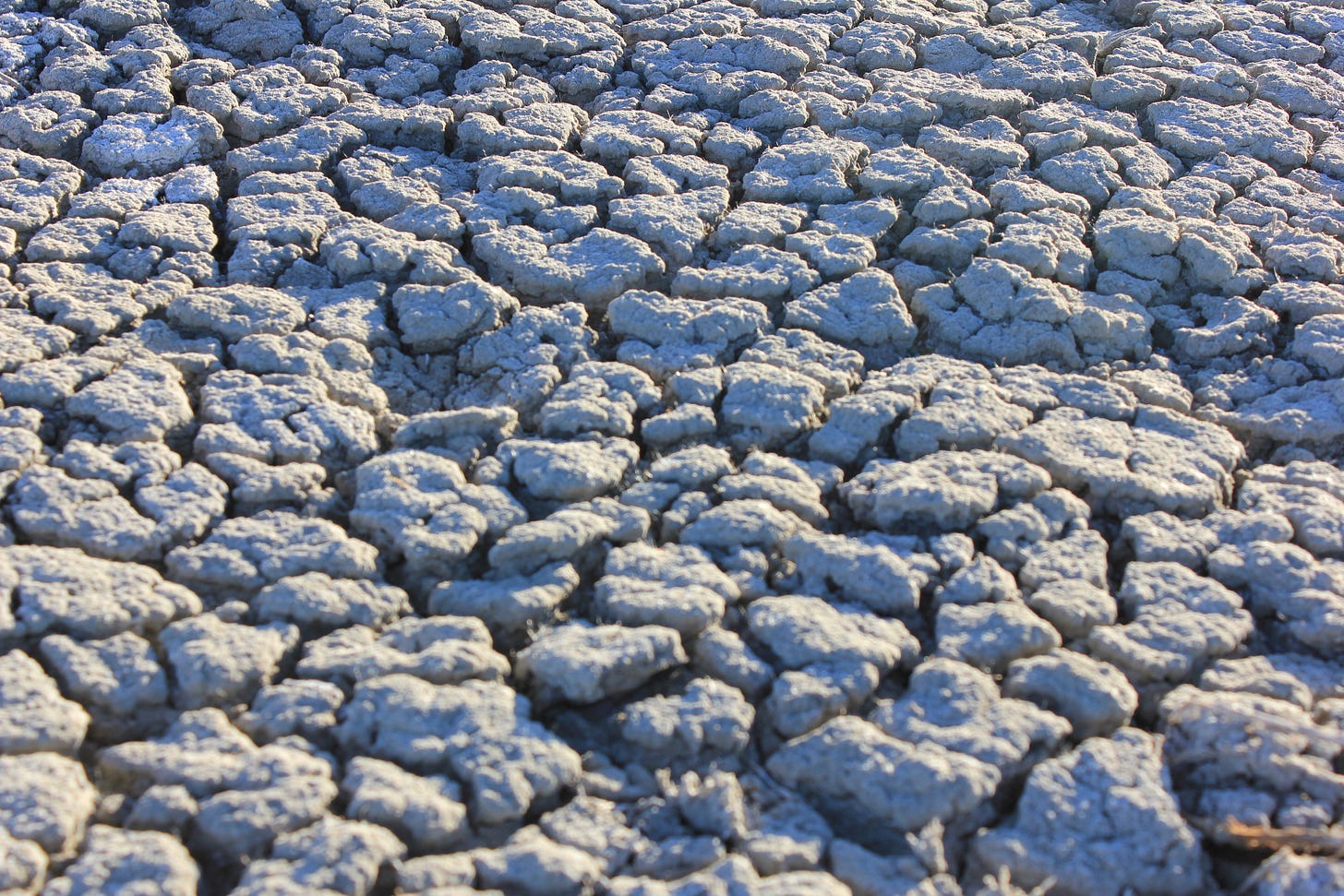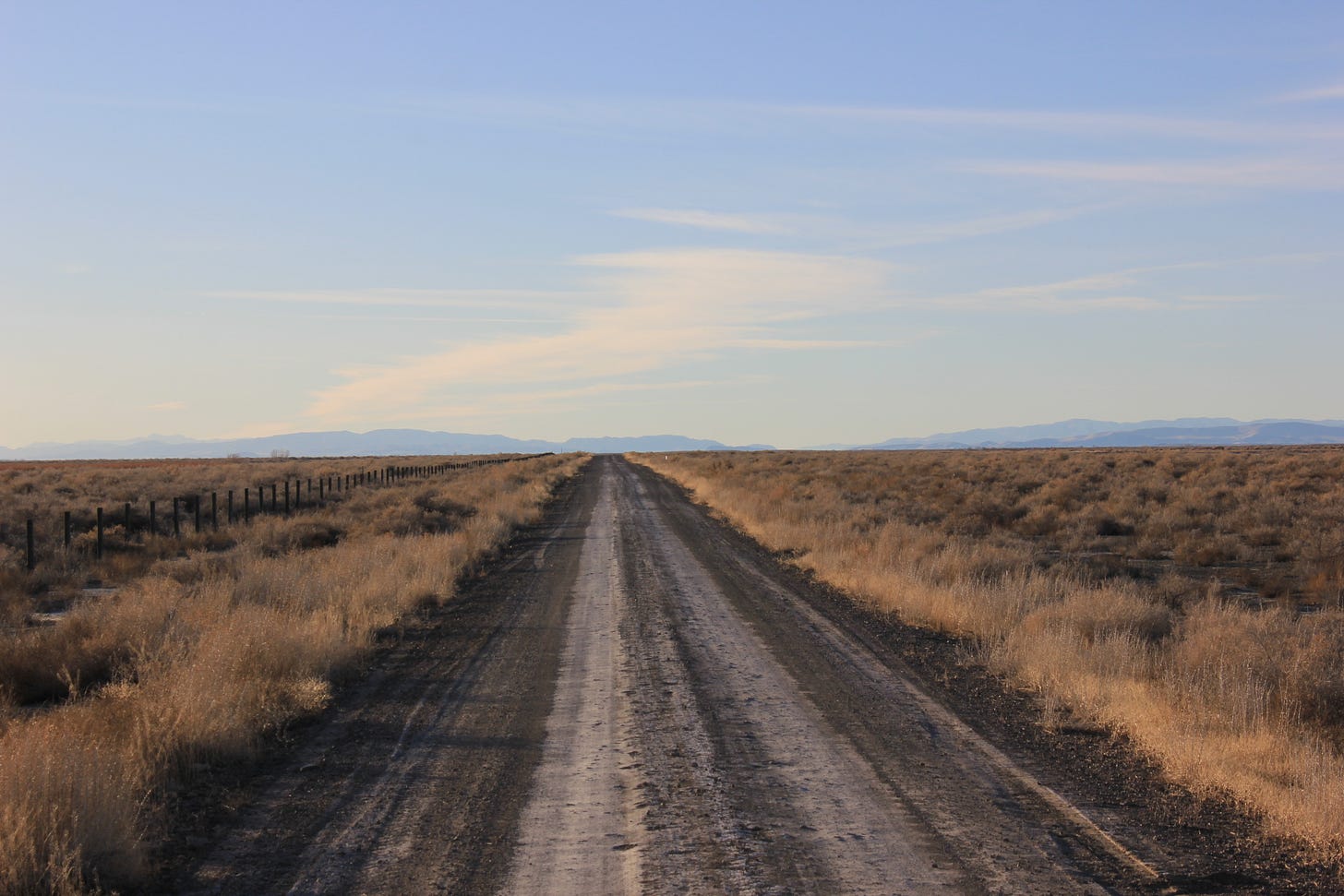Welcome to Western Water Notes.
To get all my posts in your inbox, click the button to subscribe below. This newsletter is free, but if you find my work valuable and want to support it, please consider the monthly or yearly subscription plans below. You can also support my independent journalism by sharing these posts with friends or on social media. As always, drop me a line with feedback or suggestions.
Toward the end of 2017 in Las Vegas, I covered a roundtable discussion between local and state emergency managers. I don’t remember all the specifics or if I ever wrote a story about it, but one detail made a big impression on me.
It was a handout outlining the threats the state faced. There were the criminal acts you might expect to see, ones we hear a lot about in the news: Cybersecurity hacks, active shootings, hazardous spills, chemical weapons. But many — if not a majority of the threats — had to do with weather/climate-driven events. They were things like avalanches, flooding, droughts, extreme heat, landslides, storms and runaway fires.
When the news broke a couple of weeks ago that Project 2025 included a proposal to dismantle NOAA and commercialize the National Weather Service, the meeting was one of the first things I thought about. To me, it underscored the role (often unseen and under-appreciated) that weather plays in our lives and the importance of access to data, for emergency managers and for the public at large. We all rely on the weather report to evaluate risk in our daily lives. How hot or cold will it be? How windy? How stormy? Should I prepare my home for flooding? For a fire? How should I prepare for work? For a trip? The weather report, of course, is not only used to make life-saving decisions in emergencies. It also supports our economy in more ways than one: It is not a coincidence that NOAA is under the U.S. Department of Commerce.
Other private weather services provide more information with additional precision and data. But many of them rely on the baseline tools and data coming out of NOAA, as AccuWeather noted in a recent statement to the Los Angeles Times rejecting the plan. I won’t dwell on the point (as many others have made it), except to say this issue feels especially resonant in the summer. Last month, Las Vegas hit an all-time record of 120°F, according to the National Weather Service, and July 2024 was the hottest on record. NASA found that July 22 was the hottest day on record. Other cities across the West, like Portland and Sacramento, also recorded their hottest months in July 2024. At the same time, wildfires are burning across the West, from California to Oregon.
Solid weather information and forecasts seem more important than ever.
More on the plan and proposal from the L.A. Times’ Hayley Smith:
The call to dismantle a vital federal department has raised the hackles of experts who say NOAA provides not only important free data, such as weather forecasts and satellite observations, but also life-saving information about hurricanes, heat waves, atmospheric rivers and other extreme events — many of which have been shown, through myriad studies, to be worsening due to global warming.
News roundup:
1/ A 21st Century climate: There’s a phrase I’ve heard many times (if anyone has a good source, it would be appreciated!) that Western water issues come down to this: “19th Century law, 20th Century infrastructure and a 21st Century climate.” On that note, California state water officials reported this week that its reservoirs could see declines of roughly 20% in the coming decades due to a changing climate.
The San Francisco Chronicle’s Kurtis Alexander reports “such a dip in supplies would have a harrowing effect on cities and towns served by the State Water Project, which collectively provides at least some water to 27 million Californians.”
This comes as a UCLA scientist released updated data showing that the last quarter-century have been the driest for the American West in the past 1,200 years, building upon a study three years ago, the Los Angeles Times’ Ian James reports. “The dryness still wins out over the wetness, big time.”
2/ Yellowstone National Park closed the Biscuit Basin area after a hydrothermal explosion at the end of July. It’s a reminder that there is a whole world underneath us, and that world is very much active and alive. More from WyoFile’s Katie Klingsporn.
More from the USGS:
3/ A new study looks at how the cost of groundwater effects both short-term and long-term responses in crop choices and irrigation. More from a blog post by the Energy Institute at Haas. Here’s a link to the study.
4/ The Northeastern Indian Water Rights Settlement Act is going through Congress and it includes $5 billion for water infrastructure for the Navajo Nation, Hopi Tribe and the San Juan Southern Paiute Tribe. The Arizona Republic’s Arylssa D. Becenti reports that for the San Juan Southern Paiute Tribe, the legislation also means the ratification of an intertribal treaty and securing 5,400 acres of land. It “means more than water — it means finally claiming land they can call home.”
5/ Worth checking out this piece in NPR by Jonaki Mehta, Christopher Intagliata, and Alisa Chang on the opening of Dos Rios, California’s newest state park. “In addition to bringing much-needed green space to an underserved area, its unusual design uses nature-based climate solutions that reinvigorate native wildlife.” There are stunning photos to go along with the piece from Geloy Concepcion.
Stories from across the West:
- New Oregon water boss targets difficult task of rapidly modernizing outdated laws
- Southern Utahns open their yards to show off' ‘creative’ water-wise landscaping
- New Mexico cracks down on drinking water quality violations
- Court to hear TCID repayment contract for canal lining project
- Salton Sea now emitting bad smells year round. Here's why
- Another Lake Powell pipeline proposal — but for Arizona tribes
For my Nevada water friends:
The state is rolling out a new website next week.
That’s it for now. As always, if you have any tips, please send them my way.
Wishing everyone a good weekend.
Cheers,
Daniel








